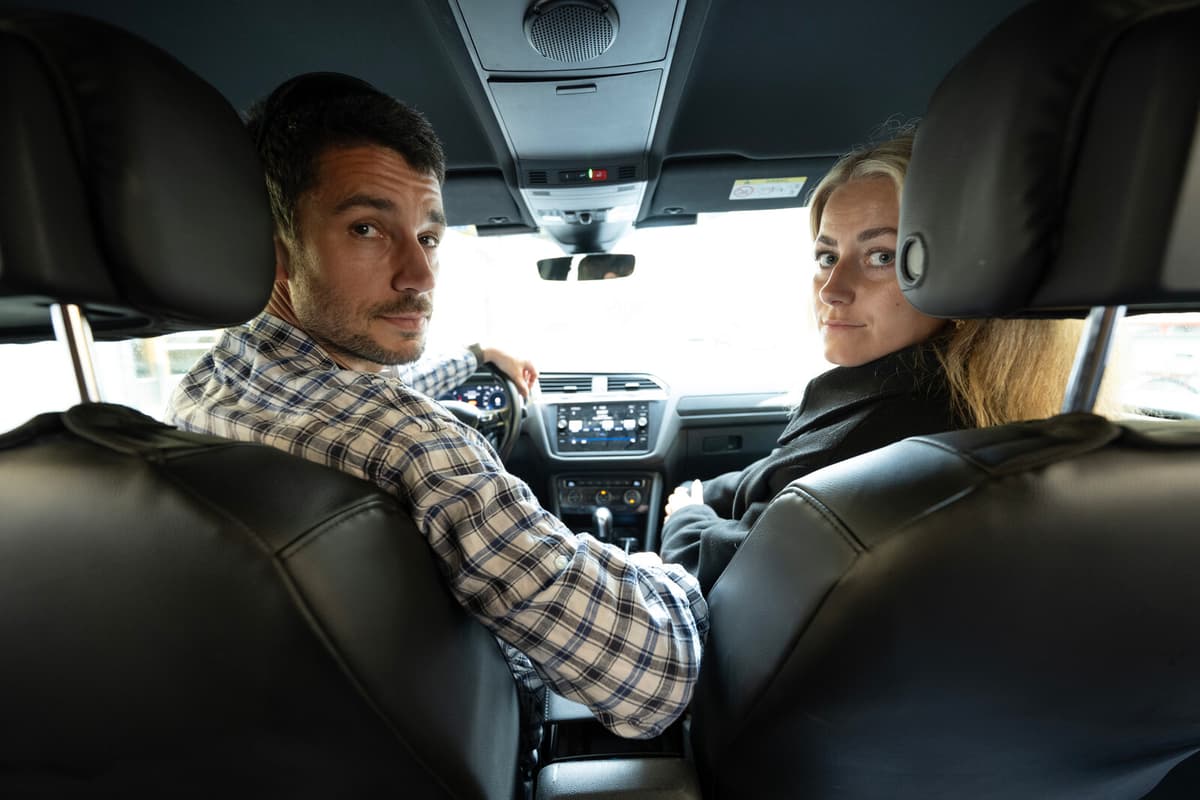Tonight's plan has fallen apart. Two of the homes that police officers Johann Danielsson and Emma Höppner had planned to visit must be struck. One because the man in the relationship was arrested the night before, suspected of serious violence against a close relative.
The other couple they cannot visit because a preliminary investigation leader has flagged that police visits before the weekend increase the risk of the woman in question being harmed. It's Friday afternoon, and although Emma Höppner has a "really bad feeling" and is worried that the violence the man can exert risks becoming fatal, she must have ice in her stomach.
Johann Danielsson and Emma Höppner work with what can be described as a system change. They try to prevent serious violence in close relationships by visiting homes where violence is believed to be exerted. By knocking on the door and talking to both the perpetrator - almost always a man, and the victim - almost always a woman, they try to challenge the image of relationship violence as a private family matter.
They should know that the police are keeping an eye on them, says Johann Danielsson, who is also the coordinator for the unit for particularly vulnerable victims, in the police area Stockholm City.
Bad gut feeling
Since the working methods are relatively new, there are no concrete guidelines for how they should work. Much of it is about gut feeling and methods that have been developed over the past year.
After discussing for a few minutes which homes to prioritize during the shift, the plainclothes police officers get into the car to go on the first visit of the work shift. The journey goes to an address in a finer area of Stockholm's inner city. In this relationship, there are several factors that, according to investigations, have been shown to increase the risk of fatal violence, they explain on the way. Controlling behavior, substance abuse problems, presence of strangulation violence. The man is also believed to have access to weapons and the woman has expressed fear for her life.
It's far from the first time the police are on site in the apartment. It's early afternoon and the man is intoxicated when they knock on the door. Both are of retirement age, the woman has already stopped working while the man is expected to do so soon. This is considered to increase the risk of escalating violence.
After 45 minutes, they come out to the car again.
It feels wrong to describe the visit as good, says Emma Höppner.
She still has a bad feeling. The woman does not want to tell about everything the man exposes her to, after a 40-year-long relationship, the normalization process has gone a long way and the police do not have sufficient evidence to prosecute the man without her participation. But hopefully, a seed was sown, says Höppner.
I still got the feeling that this perpetrator in some way understands why we are there. And that we do not accept what he does.
The tip of the iceberg
It's regular police work that makes the police aware of the violent men. Previously, alarms about apartment fights and anonymous tips from neighbors and relatives could result in individual visits. Now there is an opportunity to follow up and build relationships to increase the chances of either change or prosecution.
The Friday evening continues with more visits. A woman who has been difficult to reach suddenly opens up and tells that her violent boyfriend has recently left her for another woman, who is now heavily pregnant. The police need to direct their efforts in that direction, warns the ex-girlfriend.
In another home where an adult son has previously threatened his mother with a knife, the police suspect mental illness in both parties and think it's best to alert social services. In some stairwells where a direct confrontation is considered to increase the risk of more violence, Johann Danielsson and Emma Höppner choose to knock on the neighbors' doors instead, to remind them of the importance of raising the alarm when they hear fights and bangs.
The list of addresses where violence is suspected to be exerted is long. At the same time, they know that the dark figure is enormous. The police as an authority have recently become aware of how serious and extensive violence in close relationships is. But it still needs to be prioritized even more than it is today, says Danielsson.
It still ends up in the shadow of all the gang shootings. But look at how many are murdered, on average 15 women per year. It's extremely serious.
Staking out the woman's job
Sometimes, a work shift is spent staking out a suspected violent woman, where the man is so controlling that she cannot be reached in other ways. By parking outside her job and quickly running up to stretch out a hand during the short distance between work and home, they hope to be able to offer her help.
So far, the unit in Stockholm's inner city is relatively alone in working so proactively and preventively. But there have also been changes at the national level.
In the nationwide project "Operation Beta", a criminologist has compiled a list of hundreds of men who risk posing a threat to their loved ones. In several regions across the country, the police have started knocking on their doors, like the Stockholm police, to show that the authorities are keeping an eye on what they are doing.
It's a tough job. No major results have been measurable yet, the initiative in the local police area Stockholm City has only been going on for a few months. But recently, Emma Höppner received a phone call from a woman who had finally left her violent man, after several years of physical and psychological abuse.
Then it's something that works with what we do, she says.
Sophie Tanha/TT
Facts: Here you can get help
TT
If you are a woman and exposed to violence in a close relationship, you can call the Women's Peace Line at phone number 116 016. It's free to contact us and you are anonymous. The call is not visible on the phone bill.
If you are a man and exposed, you can call the Support Line for Men at 020-80 80 80.
If you exert violence, you can call the national support line Choose to Stop, at phone number 020-555 666.
In the event of an ongoing crime or in an emergency, the emergency number 112 applies. The police's phone number for non-urgent matters is 114 14.






